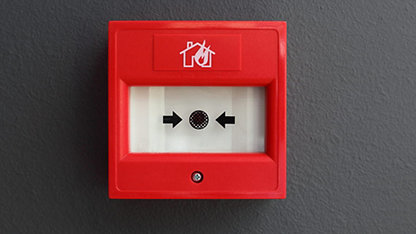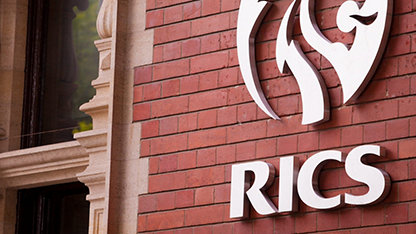In recent years, the debate around building safety has increased following the tragic events at Grenfell Tower in 2017.
Since then, the UK has witnessed a significant reform in building safety and a renewed importance in creating safer homes.
With each of the four UK nations taking a different approach toward building safety, RICS has been working closely with each government and industry to shape, influence and support building safety improvements.
Wales, in particular, has seen the introduction of several innovative schemes designed to address building safety, and RICS is working closely with the Welsh Government to shape and implement these developments.
Safer Buildings in Wales
With the (UK Government) Building Safety Bill making some significant changes, this has enabled the Welsh Government to develop its own strategy, incorporating many aspects of the UK Bill, but with some clear differences.
In early 2021, the Welsh Government consulted on changes to introduce a new building safety framework through the Safer Buildings Whitepaper. With the proposals following a similar approach to the UK Building Safety Bill, including the introduction of a ‘duty holder’ and a golden thread, there are some noticeable differences – including the introduction of an ‘accountable person’ for any building with two or more dwellings, an annual fire risk assessment, and greater regulation for buildings under 18 meters.
In February 2021, Andrew Thomas MRICS MIFireE MBA gave evidence to the Welsh Parliament on behalf of RICS to outline our response to the Safer Buildings Whitepaper and ongoing safety issues within Welsh tower blocks. You can view the committee session here.
Building safety fund and passport
RICS have been working extensively with the Welsh Government to develop their Building Safety Fund policy.
The proposals will see the government fund a comprehensive building safety survey on 11+ meter residential buildings, which will incorporate an EWS1 assessment should one be outstanding and required. This will be further enhanced by surveys investigating, among other matters, compartmentation, evacuation systems and fire doors and will utilise the use of building passports.
To support this work, the Welsh Government will be engaging with the RICS External Wall System Assessment Training Programme, developed to increase the number of professional and competent EWS1 assessors, and will link up course completers to outstanding survey requirements.
Those who have completed the course will also be able to benefit from the PII scheme designed in partnership between the RICS and UK Government to address the challenges surveyors are facing in accessing sufficient coverage for fire safety work, specifically, cladding.
Furthermore, RICS is supporting the Welsh Government with their proposals to expand the use of building passports to incorporate energy efficiency improvements where feasible and not safety-critical. This is to utilise opportunities to minimise disruption to tenants by integrating energy performance and safety improvements e.g. investigating opportunities for greater insulation and ventilation as well as modern technologies such as vertical Solar PV. To further aid this, RICS professionals can benefit from retrofit CPD training in Wales to further enhance their skillset on energy performance improvements.
Leaseholder Support Scheme
On top of wider building safety and cladding remediation work with the Welsh Government, RICS has been working with officials and the Minister to develop the Welsh Government Leaseholder Support Scheme. The programme, which is the first of its kind in the UK, has been developed to support those leaseholders in severe financial difficulty because of living in a cladding-affected home. It will give them the option to sell their property and either continue living in the property but rent through a relevant authority or move.
RICS have been working with the Welsh Government to develop valuation guidance to enable this scheme to give value to homeowners while ensuring good use of public funds is delivered.
Commenting on the building safety developments in Wales, RICS Senior Public Affairs Officer for Wales Sam Rees said:
“Since the tragic events at Grenfell Tower, building safety has quite rightly taken a priority in our work. RICS have been working closely with the UK and Welsh Government, as well as industry bodies and resident groups to address some of the major challenges facing those living in multiple-dwelling blocks.
“RICS continues to work extensively with the Welsh Government and partners to develop a robust, properly resourced building safety framework in Wales. This includes training a significant number of new EWS1 assessors, creating guidance that protects leaseholders from picking up unfair costs and helping to unlock the housing market.
“In addition to our work in Wales and across the UK, RICS has also been developing the UN-endorsed International Fire Safety Standards, which for the first time, creates a globally consistent approach towards building safety and management, to save more lives by reducing risks and preventing fires.”












